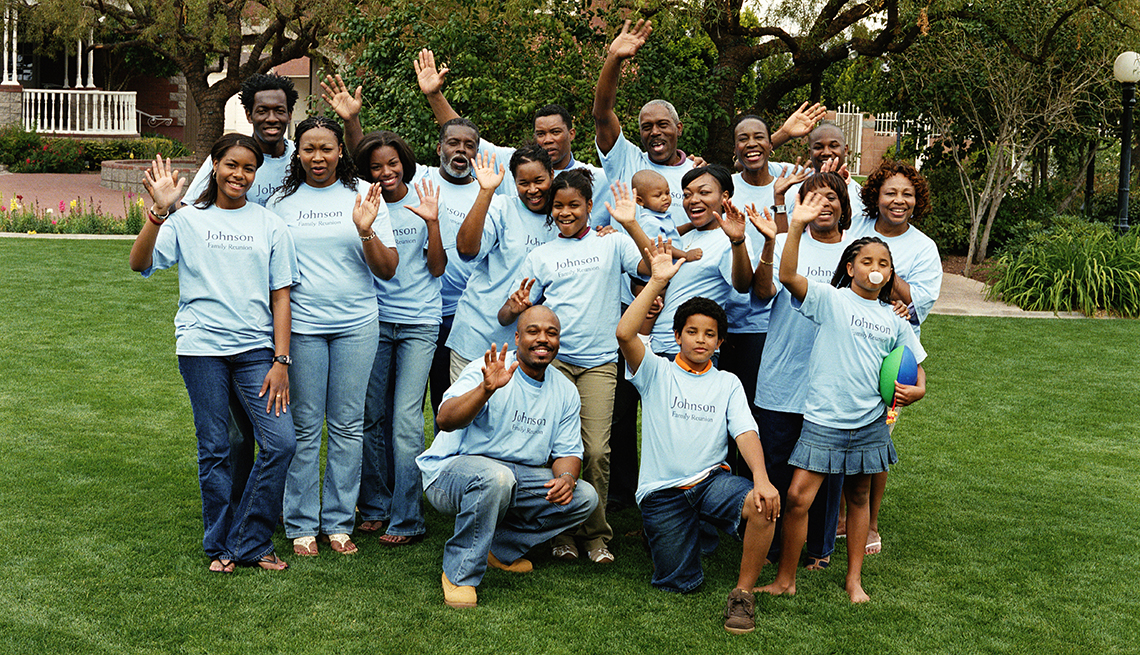
6 things to know about planning a family reunion
- Select a language for the TTS:
- UK English Female
- UK English Male
- US English Female
- US English Male
- Australian Female
- Australian Male
- Language selected: (auto detect) - EN
Play all audios:

Experts add that it’s important to include all age groups in reunion planning, particularly young people. They are, after all, the future of the family — and reunions. Harris says the young
adults in his family haven’t quite taken up the planning mantle, but they do value keeping in touch with each other, with the help of technology. They have a texting group on GroupMe, for
example, he says. “They do a lot of checking in on each other,” Harris says. “And sometimes the conversations go on for hours and even days going back and forth.” Thinking of organizing
a family reunion? Here are some tips to get you started. 1. START EARLY It’s never too soon to start planning, even if it’s just for a backyard barbecue, experts say. If you’re planning a
big gathering at a hotel or other venue, they suggest starting as much as two years in advance. A time line can help you keep organized and assign tasks — and avoid surprises. 2. MAKE THE
REUNION COMMITTEE INCLUSIVE A range of ages and incomes will help ensure there are activities that everyone can enjoy and afford, experts say. “You want to have people who represent the
youngsters, your families with children, and then our seniors,” says Harris. “People feel it when they are left out.” Also, including younger generations in the planning will prepare them to
take over in the future. 3. CONSULT THE EXPERTS The Family Reunion Institute hosts free virtual workshops on how to organize a reunion. Convention and visitors bureaus and chambers of
commerce also sponsor family reunion workshops that showcase hotels, restaurants and attractions and offer tips on organization. Jeffrey Mills, a recently retired marketing expert based near
Atlanta, wrote a manual for the hospitality industry on how to attract the reunion market and has also taught at showcases. He focuses on practical tips, including making a reunion attendee
spreadsheet that tracks names, addresses and relationships. You can use the information to create a family tree and raise reunion funds by charging a few dollars for copies. 4. USE
TECHNOLOGY Email, social media and texting apps like Facebook Groups and GroupMe can help people stay in touch between reunions and build excitement about upcoming events. Payment apps like
PayPal or Venmo make it easier to handle the money, including allowing people to pay over time. Use Zoom or similar apps to keep in touch, to include people who can’t attend in person, and
to host events like family cooking lessons. 5. SEEK OPPORTUNITIES TO EXCHANGE INFORMATION The Family Reunion Institute encourages families to share health information. “Oftentimes there are
certain medical conditions that run through families, and families can organize to support each other to help prevent possible health conditions,” says Holloman, whose nonprofit promotes
research on family reunions and helps families, particularly those of African American descent, organize them. The institute was founded by Holloman’s mother, Ione Vargus, professor emerita
at Temple University. 6. CELEBRATE FAMILY HISTORY Lisa Louise Cooke of Genealogy Gems, a podcaster, YouTuber and author, has many tips on how to make history fun at reunions, such as a
hopscotch game that requires answering a family trivia question. She also has ideas for genealogy-based souvenirs. One family used a treasured blanket design to create a wrapper for souvenir
candy bars. Another gathered and distributed favorite family recipes. “To me, a family reunion isn’t really a family reunion without genealogy,” she says. “The one thing that binds everyone
together is that they share ancestors.”
